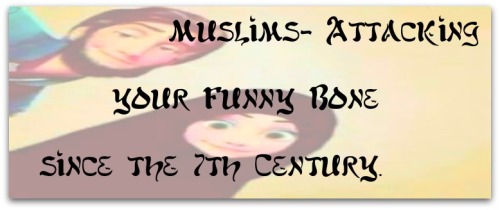
Written by Theresa Corbin
Originally published on OnIslam.net-
Did you hear the one about the Priest, the Rabbi, and the Imam who walked in to a bar?
Of course not! Imams don’t drink.
Bad jokes aside, most of the non-Muslim world imagines that Muslims live humorless and austere lives, never even cracking a smile.
Talk of Muslim scholars hearkens images of severe men in ivory towers handing down fatwas to a world they know nothing about – and admittedly and unfortunately sometimes this is true, but it is very far from the majority.
I hear it all the time. Every time I crack wise or show the lighter side of my personality, non-Muslims who happen to be in ear shot are always shocked and make it known that they didn’t expect me to be … gasp … funny!?
Confusion ensues, and I am written off as an anomaly. But this is so far from the truth it is not even … um, well … funny.
The Muslims have a long and hilarious history replete with a smiling and joking Prophet (peace be upon him), prankster companions, Caliphs who knew how to laugh at themselves, jokesters throughout the ages and even a long lost joke book written by revered scholar.
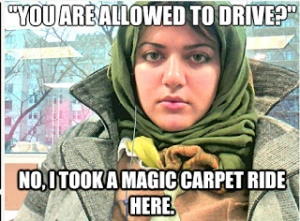
A Smiling Prophet
Think of a Prophet, any Prophet. What comes to mind?
For most people, recalling a Prophet is to think of a man suffering in rags, living a sad and hard life.
To the Muslim, a Prophet is someone who is serious when the occasion calls for it, but is good natured and often found smiling. The Prophet Muhammad is often called the smiling prophet and many anecdotes of his joyful and smiling disposition are quoted in hadith.
One such hadith, Abdullah ibn Haarith said:
“I never came across a person who smiled as much as Prophet Muhammad. Prophet Muhammad regarded smiling to a brother as an act of charity.” (At-Tirmidhi, 3641)

He Could Make a Joke
Several instances can be found in the sunnah where the Prophet (peace be upon him) is cracking jokes with his companions and family.
“Once, an old woman came up to him [the Prophet] and asked for paradise. He said:
“Old women do not enter the paradise.”
The woman started crying. As she started leaving the room, the Prophet, showing his subtle sense of humor, stopped her and said:
“Old women will become young before entering the heaven.” (Shama’il Muhammadiya, 230)
He Could Take a Joke
Not only could he dish it out, but he could also take it.
Once a companion of the Prophet named Nuayman (who was a known prankster-may Allah be pleased with him) went to the market and saw some food being sold which appeared to be delicious.
He had some of it sent to the Prophet Muhammad as if it were a gift. The Prophet was happy to receive the lovely gift of food and he and his family ate it. The seller of the food then came to Nuayman to collect the money and Nuayman said to him:
“Go to the Messenger of God it was for him. He and his family ate it.” The seller went to the Prophet asking for the price of the food. The Prophet in turn asked Nuayman:
“Didn’t you give it to me?”
“Yes,” said Nuayman.
“I thought you would like it and I wanted you to eat some of it so I had it presented to you. But I don’t have any dirhams [an increment of money] to pay the seller. So, pay, O Messenger of God!”
The Prophet had a good laugh and so did his companions. The laugh was at his expense, literally, because he had to pay for the unsolicited “gift”.
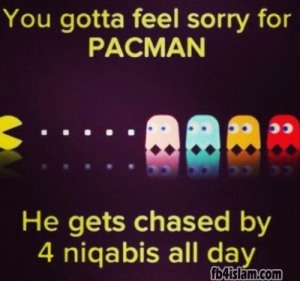
naqabi = strong and brave woman who wears face veil.
His Companions Knew How to Laugh Too
The companions followed suit and didn’t take themselves too seriously. During the caliphate of Uthman after the Prophet’s death, a group of companions were sitting in the mosque. They saw Makhramah ibn Nawfal, who was by this time old and senile.
Makhramah got up to relieve himself and because of his blindness might have done so in the mosque. Nuayman (at it again) got up and went to take him to another place.
Little did Makhramah know, Nuayman had not guided him to the proper place but guided him to relieve himself in a place that was still in the mosque!
People shouted at Makhramah. The poor old man was distressed and said:
“Who has done this?” The people told him it was “An-Nuayman ibn Amr”.
The old man swore and announced that he would knock Nuayman on the head with his stick.
Nuayman left and returned. He was scheming again. He saw Uthman, the leader of the Muslims, performing prayer in the mosque. Nuayman also saw Makhramah. He went up to Makhramah, changed his voice, and said:
“Do you want to get at Nuayman?”
The old man shouted:
“Yes, where is he?”
Nuayman took him by the hand and led him to the place where the Caliph, Uthman, stood and said to him:
“Here he is!”
The old man raised his staff and beat Uthman. Blood flowed and the people shouted:
“It’s the Amir al-Muminin [meaning Uthman]!”
In spite of the blows he had suffered, Uthman was still able to laugh at the deeds of Nuayman.
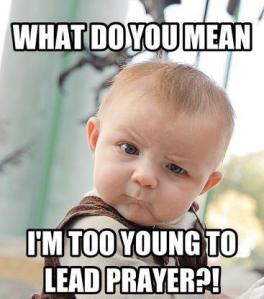
Humor of Later Generations
This jovial tradition and pranking doesn’t end with the Prophet or his companions.
Tales are told of a hilarious man named Juha who lived in the 8th. century. Juha was a Muslim and a comedic figure who was famous for his hundreds of stories that still remain popular in the Middle East.
One of Juha’s stories is about him being flawed. He is caught lying and jokes about it:
“A neighbor came to Juha and said:
‘Lend me your donkey, for suddenly I find I have to go on a journey.’
Juha, who did not wish to lend the man his donkey, replied:
‘I would willingly lend it to you, but alas, I sold it yesterday’.
Just then, the donkey, which was in the stable, began to bray in a deafening manner. The neighbor jumped.
‘But your donkey is in the stable,’ he remonstrated. Juha replied angrily:
‘You fool, would you take the word of an ass against mine?'” (Source)
In the 11th. century, a revered Baghdad Muslim scholar known as al-Khatib al-Baghdadi penned a wisecracking guide for party crashers.
“The tome was originally authored by […] a well known scholar of the Prophet Muhammad’s teachings. According to Emily Selove of the University of Manchester, who did the translation, he wrote the book to remind readers ‘that every serious minded person needs to take a break.’” (Source)
Today Muslim scholars follow in this tradition and joke in lecture and on Twitter and Facebook. Muslims around the world laugh along and add to the good natured joshing.
If you want to see more comedy from the Muslims check out Baba Ali’s website, check out some of islamwich’s lighter posts, and/or (very highly recommended) plan a trip to Memphis, TN for the Muslims In-Memphis’ Kosher and Halal comedy night on March 21.

Stay tuned for next week’s post where I tell you all about my adventures, interviews, and talks in Memphis!
Do you got jokes? Share them in the comments.
Follow us (upper right of the page), email us (islamwich@yahoo.com), like our face with your face on Facebook, like the post, share it, pin it, comment on it, and/or do whatever social media magic it is that you prefer. Find out more about us in the understandably named “About Us” page and browse other posts in our “Table of Contents”.
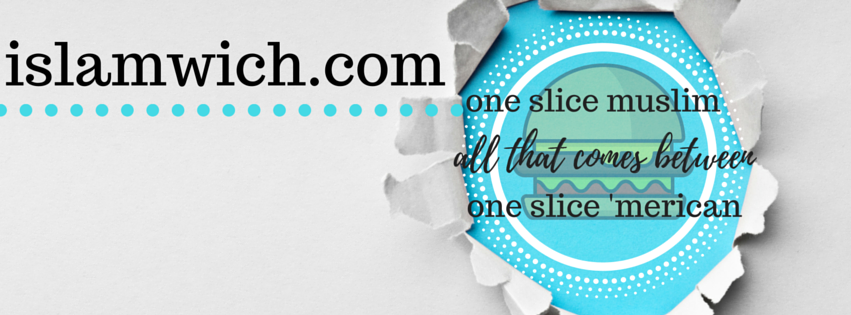

MashaALLAH specially the magic carpet one keep it going InshaALLAH and may ALLAH protect always Aameen
LikeLike
Jazakum Allah Khair, Shahanz. I love that magic carpet joke, Alhamdulillah. Glad you enjoyed it too! Don’t be a stranger to islamwich ❤
LikeLike
Yes, we need joke! But, not a joke like Mr.Bean, I think. 😃
LikeLiked by 1 person